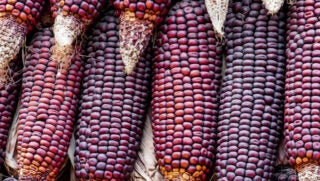The draft Farm Bill was due to be released by the end of next week. However, due to disagreements with the SNAP program and accusations that the draft is being kept secret from those who oppose cuts to the program, the draft bill release has been delayed until an agreement can be made. SNAP is a huge portion of the Nutrition Title, and a heated conversation between politicians. Understanding what this program entails is a big part of understanding why a bipartisan agreement is crucial to this bill.
The Supplemental Nutrition Assistance Program was created out of the food stamp program. Food stamps began in 1939, and EBT cards were adopted worldwide by 2004. “SNAP offers nutrition assistance to millions of eligible, low-income individuals and families and provides economic benefits to communities. SNAP is the largest program in the domestic hunger safety net. The Food and Nutrition Service works with State agencies, nutrition educators, and neighborhood and faith-based organizations to ensure that those eligible for nutrition assistance can make informed decisions about applying for the program and can access benefits. FNS also works with State partners and the retail community to improve program administration and ensure program integrity.”
SNAP takes about 69 percent of the funding in the Nutrition Title. There are various smaller programs underneath SNAP program in the 2014 Farm Bill as well, such as the Restaurant Meals Program and the Nutrition Education and Obesity Prevention Grant Program, both of which can be read about here.
Cuts to the program and a change in the way food stamps are provided have been an issue during talks of the bill. Republicans are wanting to impose stricter requirements to qualify for the program, in hopes of cutting the funding down. Stricter work and eligibility requirements, as well as a food-box delivery program that cuts down the allotted amount each family receives each month, in exchange for non-perishable food at wholesale pricing. However, Democrats disagree with this proposal, stating that it will have a detrimental effect on the food security of the nation. Some farmers and ranchers are worried that the limited funding would mean less business at fresh-food markets where EBT cards are accepted.
The proposed reform of the program isn’t seeing a lot of bipartisan agreement currently, which is causing the delay in releasing the draft bill. Some say the disagreement is just a way to delay passing of the bill before the deadline on Sept. 30, 2018.
Congress takes a recess for Easter, which means the draft won’t be released until well into April if an agreement can be reached. SNAP is a crucial part of our society, and a crucial part to the formation of the next bill.
Markie Hageman is a senior, majoring in agribusiness, at Fort Hays State University. She is actively involved in her state Cattlemen’s Association, Young Farmers chapter, and National Cattlemen’s Beef Association. Follow her series exploring various parts of the next Farm Bill.



